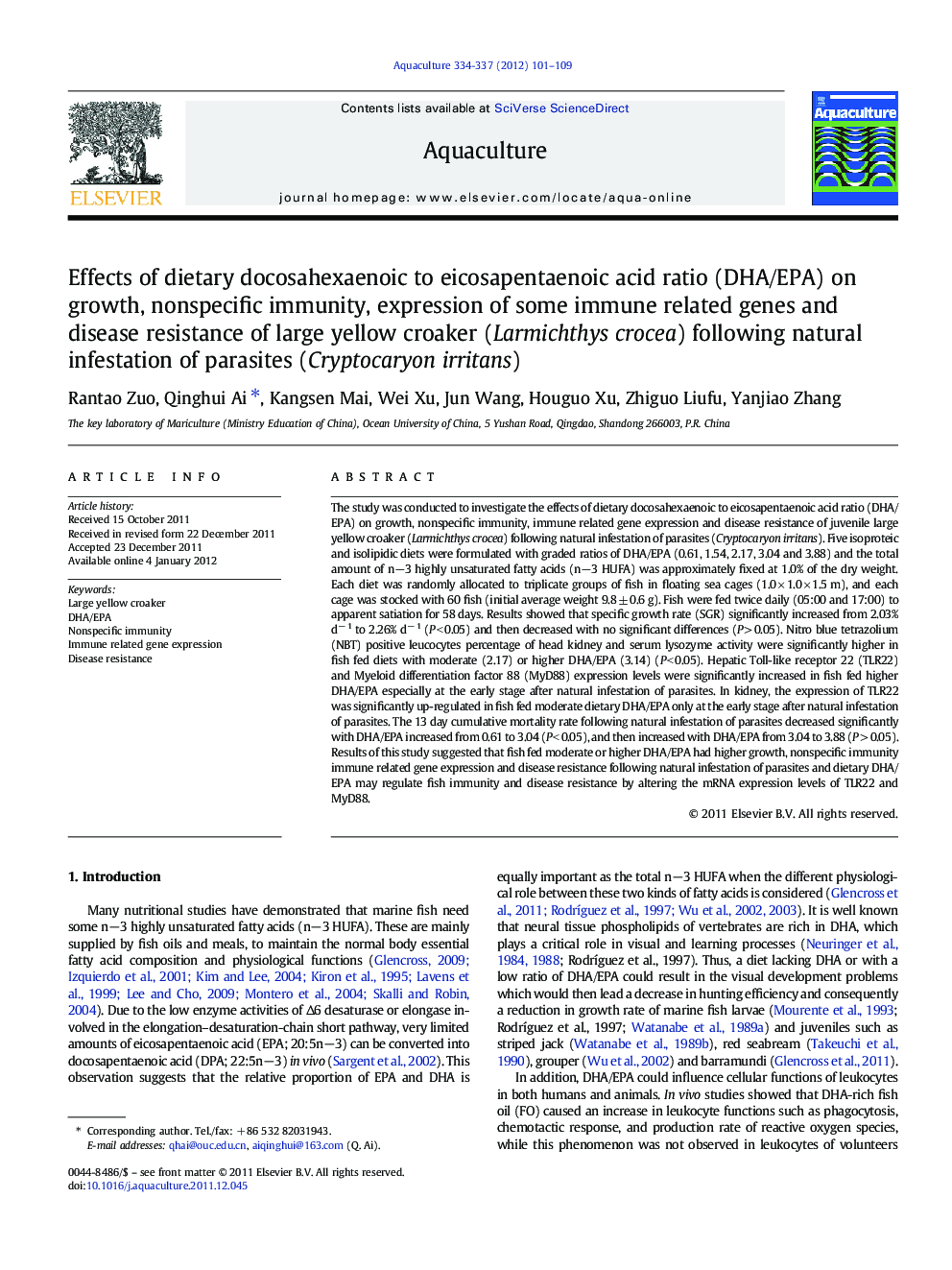| Article ID | Journal | Published Year | Pages | File Type |
|---|---|---|---|---|
| 2422706 | Aquaculture | 2012 | 9 Pages |
The study was conducted to investigate the effects of dietary docosahexaenoic to eicosapentaenoic acid ratio (DHA/EPA) on growth, nonspecific immunity, immune related gene expression and disease resistance of juvenile large yellow croaker (Larmichthys crocea) following natural infestation of parasites (Cryptocaryon irritans). Five isoproteic and isolipidic diets were formulated with graded ratios of DHA/EPA (0.61, 1.54, 2.17, 3.04 and 3.88) and the total amount of n−3 highly unsaturated fatty acids (n−3 HUFA) was approximately fixed at 1.0% of the dry weight. Each diet was randomly allocated to triplicate groups of fish in floating sea cages (1.0 × 1.0 × 1.5 m), and each cage was stocked with 60 fish (initial average weight 9.8 ± 0.6 g). Fish were fed twice daily (05:00 and 17:00) to apparent satiation for 58 days. Results showed that specific growth rate (SGR) significantly increased from 2.03% d− 1 to 2.26% d− 1 (P < 0.05) and then decreased with no significant differences (P > 0.05). Nitro blue tetrazolium (NBT) positive leucocytes percentage of head kidney and serum lysozyme activity were significantly higher in fish fed diets with moderate (2.17) or higher DHA/EPA (3.14) (P < 0.05). Hepatic Toll-like receptor 22 (TLR22) and Myeloid differentiation factor 88 (MyD88) expression levels were significantly increased in fish fed higher DHA/EPA especially at the early stage after natural infestation of parasites. In kidney, the expression of TLR22 was significantly up-regulated in fish fed moderate dietary DHA/EPA only at the early stage after natural infestation of parasites. The 13 day cumulative mortality rate following natural infestation of parasites decreased significantly with DHA/EPA increased from 0.61 to 3.04 (P < 0.05), and then increased with DHA/EPA from 3.04 to 3.88 (P > 0.05). Results of this study suggested that fish fed moderate or higher DHA/EPA had higher growth, nonspecific immunity immune related gene expression and disease resistance following natural infestation of parasites and dietary DHA/EPA may regulate fish immunity and disease resistance by altering the mRNA expression levels of TLR22 and MyD88.
► Moderate or higher DHA/EPA could significantly improve fish growth and immunity. ► TLR22 and MyD88 expression was markedly higher in the moderate or higher DHA/EPA. ► Fish fed diets with moderate or higher DHA/EPA had lower cumulative mortality. ► Dietary DHA/EPA may regulate fish immunity by altering TLR22 and MyD88 expression..
